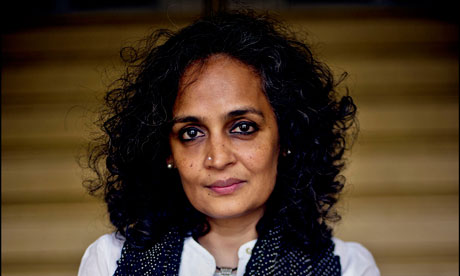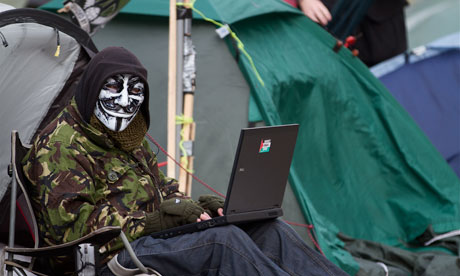Eqbal Ahmad
November 2, 2012When holy warriors wage their jihad, the first casualties are those whose cause they claim to represent. The poor and oppressed become further disempowered, and are ultimately crushed under tanks or blown up by cruise missiles

“Never before had been so tragic the links between wealth and weakness, material resources and moral bankruptcy. Never before in the history of Islamic peoples had there been so total a separation of political power and civil society”.
This was Eqbal Ahmad's anguished judgement in 1982 as Beirut became the first capital city in the world whose destruction was televised, and watched by the world week after week. As Israeli artillery and airpower systematically reduced the city to rubble, no Arab, no Muslim government budged except to suppress popular support at home. Their lucrative business with the United States, the sole sustainer of Israel, continued as usual.
Eqbal's words, though written over two decades ago, accurately describe Muslim state and society today. In February 2003, as America prepared for its war on Iraq, tens of millions of anti-war demonstrators had taken to the streets in 600 cities of the world. Thousands were arrested. Some of America's most important European allies for the past seventy years said enough - this will not pass. But no Muslim government took a stand against the war, some provided bases, and all watched "Shock and Awe"- the ultimate pornographic display of naked power - in silence. Even as cruise missiles and bombs slammed into Iraqi cities, killing thousands and wounding many times that number, the Organization of Islamic Countries refused to take a position. Had he been alive at the time, Eqbal would have been strongly critical of the Pakistan government's spinelessness on a UN vote against the war; have urged his admirer Kofi Annan to stand up to the Americans, and have raged at seeing Iraq's architectural and literary heritage reduced to cinders.
A secular Muslim with a contemporary life-style, Eqbal, together with his friend Edward Said, combined deep empathy for the Muslim predicament together with a profound understanding of Islam's relationship to power and politics. Born in a small village in Bihar in 1932 or 1933, Eqbal was witness to the blood drenched partition of India. The horrors of the time were to cement his commitment to economic and social justice. A few years later, after winning a scholarship, Eqbal left Pakistan to enroll as a graduate student at Princeton. His dissertation was a study of labour movements in North Africa. But a more radical politics called him in North Africa and he very soon became thoroughly involved in the Algerian war of independence from France.
A life-long involvement with Algeria, Palestine, Pakistan, and India, led Eqbal to a firm position on Muslim causes. The future of Muslim societies can only lie, he believed, in allowing Islamic values of justice, equality, and tolerance to shape power and politics but without the formalistic imposition of structures and strictures of centuries past. For Eqbal it was values, knowledge, aesthetics, and style that had defined Islamic civilization and invested it with greatness. But don't hanker for the past, was his message.
As Eqbal eloquently put it, those who glorify the past and seek to recreate it almost invariably fail while those who view it comprehensively and critically are able to draw on the past in meaningful and lasting ways. “The admiration for Emperor Aurangzeb is a symptom of a deep ailment”, he wrote, adding that that in Pakistan Islam has been a convenient refuge of troubled and weak leaders. Consequently while the country suffered from a protracted crisis of leadership, promises of an “Islamic state” served to distract attention away from core issues.
Political-religious movements that purport to create an “Islamic state”, and which have adopted terror as their weapon, have done enormous damage to Muslims, said Eqbal. They wage holy wars, and commit atrocities sanctimoniously, yet nothing is truly sacred to them. They spill blood in bazaars, in homes and in courts, mosques and churches. They believe themselves to be God's warriors, above man-made laws and the judgment of mankind. In doing so, they surrender the most potent weapon of the weak - the moral high ground. India's Mahatma had a lesson for us all.
When holy warriors wage their jihad, the first casualties are those whose cause they claim to represent. The poor and oppressed become further disempowered, and are ultimately crushed under tanks or blown up by cruise missiles. Should anyone doubt this, consider the impact of 9/11 upon Muslims globally. That action aroused furious American anger. It mobilized the mightiest war machine in history to devastate country after country. We are now reduced to asking: shall it be Syria next? Or Iran? Perhaps still more tragically, 9/11 created the climate that now allows for orgiastic Israeli violence to go unchecked and uncensored by the world. Today the Palestinians are more hopeless than at any time in the past. Thank you, Osama bin Laden.
What gave birth to extremist political-religious movements? Certainly, “Islamic fundamentalism” is a common enough epithet used by the western media for the Muslim variety. But, as Eqbal insisted, neither Muslims nor Jews nor Hindus are unique in this respect. All variants of contemporary “fundamentalism” reduce complex religious systems and civilizations to one or another version of modern fascism. They are concerned with power not with the soul, with the mobilization of people for political purposes rather than with sharing or alleviating their sufferings and aspirations.
All brands of religious fundamentalisms are reflections of a common problem, with shared roots and similar patterns of expression. These shared roots, in Eqbal's analysis, lie in global changes that are occurring much too fast for successful human adaptation. For millennia, humanity had experienced the unsettling process of change. But the global transformation made possible by technology and communication is so systemic that it destroys the autonomy of life lived for millennia, forces diverse peoples and individuals to live in urban proximity and compete with each other. Caught in this furious tempest of modernity and change, cultures do adapt but relatively slowly and often painfully. How peacefully and democratically a society makes this journey depends on its historical circumstances. But, as Eqbal insisted, we need not be fatalistic - what matters equally is “the engagement of its intelligentsia, the outlook of its leaders and governments, and the ideological choices they make”.
Of all choices to be made today, for Pakistan none is more important than that of Kashmir. Eqbal, as the young boy who had fought in Kashmir, was never to forget that struggle, but circumstances of life had placed him elsewhere. As he began his gradual move over from the US to Pakistan in the early 90's, Eqbal re-engaged with Kashmir, spending considerable time and effort in seeking to understand this unending blood-soaked tragedy. Travelling frequently, he met a wide spectrum of leaders advocating Kashmiri independence, as well as government leaders in India and Pakistan, hoping to find a lead into one of the world's most intractable problems. This was not easily done for, as he often remarked bitterly, both countries were willing to fight down to the last Kashmiri.
In Eqbal's opinion, India's leaders bore much of the responsibility and were morally isolated - perhaps totally and irreversibly - from the Kashmiri people. But, he argued, Pakistan's Kashmir policy was no better. It was so fundamentally and severely defective that it had successfully “managed to rescue defeat from the jaws of victory”. Since war is not an option “Pakistan's policy is reduced to bleeding India; and India's to bleeding the Kashmiris, and to hit out at Pakistan whenever a wound can be inflicted”.
Eqbal suggested a framework that would lead to a solution - give up the idea of a military solution, be prepared to compromise, do not negotiate without Kashmiri participation, and allow the rest of the world to play a facilitating role. For this, India and Pakistan must “abandon their fixed positions, fixed half a century ago”, and stop playing a zero-sum game. To be sure, this framework is no more than commonsense for a perpetually tense, nuclear-armed region, hovering at the brink of disaster.
When Eqbal Ahmad died on 11 May 1999, he was mourned across the continents from Vietnam to the West Bank and Morocco, from India and Pakistan to Europe and North America. Al-Ahram declared that Palestine has lost a friend, the Economist likened him to the Ibn-Khaldun of modern times, and even the New York Times - with which he had a running life-long running battle – admitted that he had woken up America's conscience. Eqbal, how we miss you in these troubled times.
------------------------------------------
Pervez Hoodbhoy teaches at Quaid-e-Azam University and LUMS. He was an associate of Dr. Eqbal Ahmad. This article is an updated version of an essay that was first appeared in April 2003. This essay has been posted here with author's permission
 |
The author is a professor of physics and teaches in Lahore(LUMS) and Islamabad (QAU) |
Posted by ADP. Posted In : Pervez Amirali Hoodbhoy
 IDSP-Pakistan
IDSP-Pakistan 





